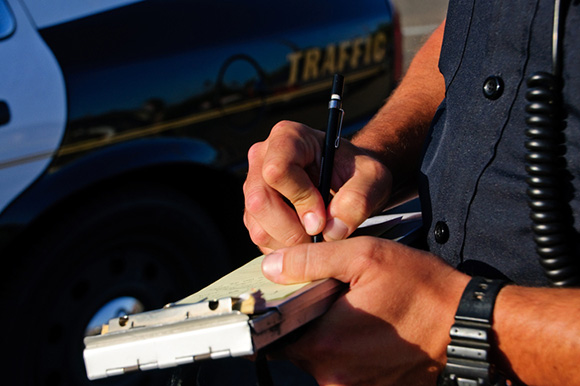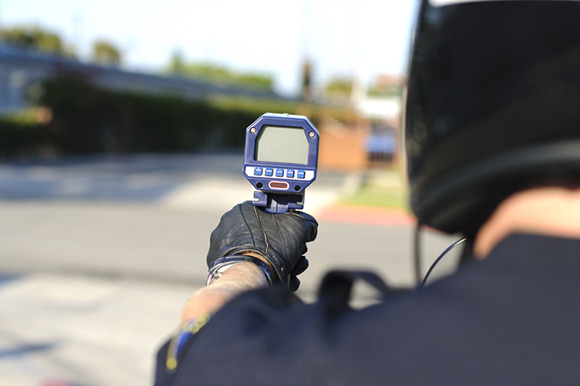A speeding ticket can have lasting consequences and cost you hundreds of dollars. Also, your insurance rates might skyrocket. You may have a hard time getting a job that requires a valid license. If you have enough problems, you may even have a hard time maintaining a valid license.
You might think that fighting a speeding ticket is hopeless. However, that’s not the case. Speeding investigations are more complicated than most people know. Here’s how a Las Vegas traffic ticket attorney can help you fight a speeding ticket.

The police usually use a radar machine to measure your speed in a speeding ticket case. There are strict guidelines for what the police must do to maintain their radar gun and make sure that it works correctly. Nevada law 459.920 gives rules for what the police must do to make sure that they only use properly functioning radar guns in their work.
First, Nevada law 459.920 allows a police department to purchase only an approved device. The device must be on the Conforming Product List of the International Association of Chiefs of Police at the time that it’s purchased. If it’s on the list when they purchase it, they can continue to use it even after it’s removed from the list.
Once they purchase a machine for department use, law enforcement must inspect the device every three years. They must check to see whether the machine has the power and structural integrity that it needs to continue to function properly. They must comply with standards set by the U.S. Department of Transportation.
Your ticket lawyer can help you fight your speeding ticket based on the police department’s failure to perform these checks. Your attorney can help you demand records from the police about when the radar was last checked. They can question the officer and their supervisors about whether they took the time and care to ensure that they had a properly functioning radar machine. If the judge agrees that law enforcement didn’t do their job to keep their machine in proper, working order, the judge may dismiss the case against you.
In addition to having a properly working radar, for a speeding ticket to be valid, the law enforcement officer must have the proper training to use it. Nevada law 459.920(3) says that a police officer must successfully complete a training course to use any kind of radar gun. The course must be approved by the Peace Officers’ Standing and Training Commission, so the police officer can’t just have another member of the department give them an informal training course and call it good. Instead, the police officer who uses the radar gun must actually be approved and certified through official training.
There are a number of reasons why Nevada law requires a police officer to have formal training before using a radar gun. When misused, a radar gun can produce grossly inaccurate results. For example, when the police use a radar gun near buildings or trees, the radar gun can hit these objects instead of your vehicle and produce a wildly inaccurate reading.

In one case, a reporter clocked a palm tree traveling at a rate of 86 miles per hour. Of course, the palm tree wasn’t moving at all. The reporter’s work led to the groundbreaking Florida v. Aquilera case. In that case, the court dismissed about 80 speeding tickets after concluding that police officer training in the speeding ticket cases was so inadequate that the court could not have confidence that the police had fairly measured the speed of those ticketed.
Operating a moving radar gun on a hill can also produce inaccuracies. The distance between the radar gun and the vehicle can be distorted as the vehicle or the radar travel on the hill. In the case of a moving radar, the police officer must also verify their own speed and avoid parallax error when looking at their own vehicle’s instruments. A police officer who isn’t properly trained to use a moving radar may not be mindful of these many things that can cause a radar gun to produce an inaccurate reading. A ticket attorney can use any of these deficiencies to help defend you against the charges of speeding.
Once your lawyer challenges the admission of the radar evidence in the case, there are other ways that they can challenge the facts of the case. If there are other vehicles nearby at the time of the alleged speeding, the officer’s radar reading may be inaccurate. Your attorney should question the officer to make sure that they weren’t distracted or otherwise inattentive as they investigated the case. Your attorney can help you request the officer’s dash cam or body cam footage to see if it shows anything that contradicts the officer’s story.
The officer should testify from personal knowledge. With the police investigating multiple incidents each day, it’s tempting for a police officer to fill in the lapses in memory with things that sound favorable to their case. Your attorney can help you ask pointed questions that are calculated to ensure that the officer is testifying from memory rather than just adding things that they hope will help them win their case.
You may have a limited amount of time to contest your speeding ticket. An experienced traffic ticket lawyer can help you evaluate your case and determine the best course of action. They can help you gather evidence from law enforcement like maintenance records, the officer’s certification to operate a radar, and dash and body cam footage if it exists.
They can come with you to court and carefully question the officer’s testimony. Then, they can explain to the judge why it’s appropriate to dismiss the charges in your case. Working with an attorney to fight your traffic ticket offers the best chance of success.